At Online Chemist, we provide a variety of effective eczema treatments to help alleviate symptoms and improve skin health. Our selection includes calming emollients and targeted corticosteroids designed to reduce itching, redness, and inflammation. With a seamless online ordering process, you can conveniently access the care you need from home. Buy eczema treatment online today for fast, dependable service and expert-approved solutions to restore your skin.
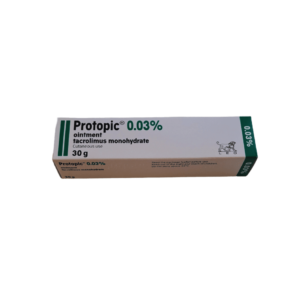
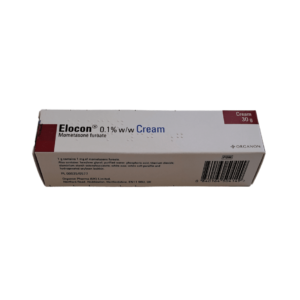
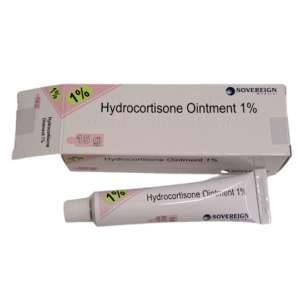
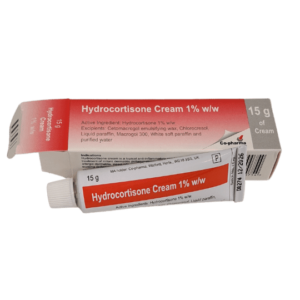
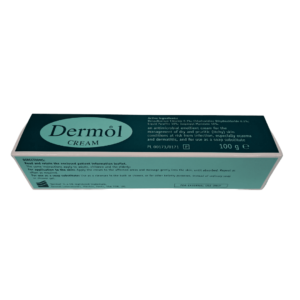
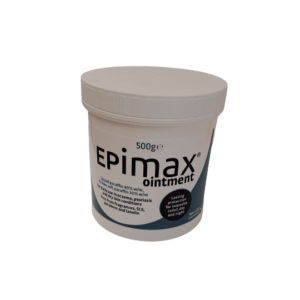
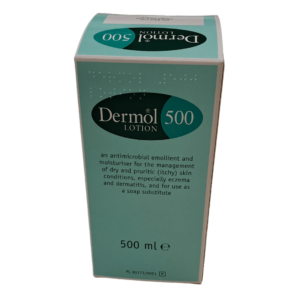
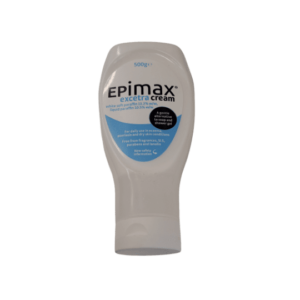


Eczema, also known as atopic dermatitis, is a chronic skin condition characterized by dry, itchy, and inflamed skin. It can affect people of all ages, but is most common in infants and children. Eczema is believed to be caused by a combination of genetic and environmental factors, and can be triggered by factors such as stress, irritants, allergens, and temperature changes.
The condition typically involves periods of flare-ups and remissions, and can be managed with various treatments, including topical creams, oral medications, and phototherapy.
Eczema is not contagious, and while it can be uncomfortable and even painful at times, it is not generally considered a serious or life-threatening condition.
Genetics: Eczema tends to run in families, and certain genes have been identified that may increase the risk of developing the condition.
Immune system dysfunction: Eczema is believed to be related to an overactive immune response, which can cause inflammation and skin damage.
Skin barrier dysfunction: People with eczema often have an impaired skin barrier function, which can lead to dryness, itching, and irritation.
Environmental factors: Factors such as irritants, allergens, and temperature changes can trigger eczema flare-ups.
Stress: Stress and emotional factors can also play a role in the development and exacerbation of eczema.
It’s important to note that while these factors are believed to contribute to the development of eczema, the condition can be complex and may involve multiple factors. Your GP or pharmacist can help identify the specific triggers and underlying causes of eczema in an individual case, in order to develop an effective treatment plan.
Dry skin: Eczema can cause the skin to become dry, scaly, and rough.
Itching: Itching is a common symptom of eczema, and can be severe in some cases.
Redness and inflammation: Eczema can cause the affected skin to become red, inflamed, and swollen.
Crusting and oozing: In more severe cases, eczema can cause the affected skin to develop crusts or oozing blisters.
Thickened, cracked skin: Over time, eczema can cause the skin to become thickened and cracked, especially in areas that are frequently scratched or rubbed.
Skin discoloration: Eczema can cause patches of skin to become darker or lighter than the surrounding skin.
Sensitivity: The affected skin can become sensitive and may burn or sting in response to certain products or environmental factors.
These symptoms can be uncomfortable and even painful at times, and can have a significant impact on a person’s quality of life. It’s important to seek medical advice if you are experiencing any of these symptoms, in order to receive an accurate diagnosis and appropriate treatment.
Ready to say goodbye to itchy, inflamed skin?
Book a consultation today!
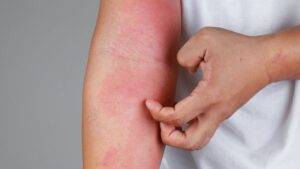

The treatment of eczema typically involves a combination of approaches, including:
Topical creams and ointments: Corticosteroid creams and ointments are commonly used to reduce inflammation and itching in eczema. Other topical treatments, such as calcineurin inhibitors (e.g. tacrolimus and pimecrolimus), may also be used for eczema.
Moisturisers: Applying a moisturiser regularly can help reduce dryness and itching associated with eczema, and help improve the skin barrier function.
Antihistamines: Oral antihistamines can be used to reduce itching and help improve sleep in people with eczema.
Phototherapy: Light therapy (phototherapy) involves exposing the affected skin to ultraviolet (UV) light, and can be effective in reducing inflammation and itching associated with eczema.
Immunosuppressants: In severe cases of eczema, medications that suppress the immune system may be used, such as cyclosporine or azathioprine.
Avoiding triggers: Identifying and avoiding triggers that can cause eczema flare-ups, such as certain foods, environmental factors, and stress, can help manage the condition.
Lifestyle modifications: Adopting healthy lifestyle habits, such as maintaining a healthy diet, getting regular exercise, and reducing stress, can also help improve the overall health and well-being of people with eczema.
The specific treatment approach for eczema may vary depending on the individual case and severity of the condition, and should be determined in consultation with your GP or book a consultation with our private doctor.
Stop the cycle of itching and inflammation – trust our eczema treatment service to provide real relief.
Eczema creams are topical medications that are designed to help manage the symptoms of eczema, such as inflammation, itching, and dryness. There are several types of eczema creams available, including:
Corticosteroid creams: These creams contain steroids that help reduce inflammation and itching associated with eczema. They are available in different strengths, depending on the severity of the eczema.
Topical calcineurin inhibitors: These creams, such as tacrolimus and pimecrolimus, help reduce inflammation and itching in eczema by inhibiting the immune system response.
Moisturisers: These creams and ointments help to soothe and hydrate dry, irritated skin in eczema, and can help improve the skin barrier function.
Barrier creams: These creams, such as petroleum jelly, provide a protective barrier over the skin, which can help prevent moisture loss and reduce irritation.
Antihistamine creams: These creams contain antihistamines that help reduce itching associated with eczema.
The specific type of eczema cream that is recommended for an individual case may depend on the severity of the eczema, the location of the affected skin, and other factors.
The instructions for using eczema creams may vary depending on the specific type of cream being used. However, some general tips for using eczema creams include:
Wash and dry the affected area: Before applying the cream, make sure the affected area is clean and dry.
Apply a thin layer: Apply a thin layer of the cream to the affected area, and gently massage it into the skin.
Follow the instructions: Follow the instructions provided with the cream, including the recommended frequency of application and any precautions or warnings.
Don’t overuse: Avoid using too much of the cream, as this can increase the risk of side effects.
Be consistent: Use the cream consistently, as directed, in order to get the maximum benefit.
Avoid contact with eyes and mouth: Avoid getting the cream in the eyes or mouth, and wash your hands after applying the cream.
Be patient: It may take several days or weeks for the cream to take effect, so be patient and continue to use the cream as directed.
Find relief from eczema symptoms with personalised treatment plans and specialist support—all online.
✅ Convenient Consultations
✅ Customised Treatment for You
✅ Fast Delivery to Your Door
Eczema is a common inflammatory skin condition characterised by dryness, itching, redness, scaling and clustered papules. It can flare up from time to time with various triggers.
You can buy eczema treatments (steroids or moisturisers) online from registered online prescribers like OnlineChemist Private Doctor.
There are various types of eczema. The most common type of eczema is atopic eczema which often starts at the early childhood and tends to run in the family. It can be associated with asthma and hay fever. It can last or return in adulthood. Flare-ups are often the result of triggers, which commonly include:
Other forms of eczema include contact-induced eczema, occupational eczema, drug induced eczema, eczema associated with varicose veins or with extreme dryness of skin.
The most common early treatments of eczema include regular emollients and soap substitutes. For acute flare-ups topical steroids can be prescribed for a short duration. Tacrolimus and Pimecrolimus can also be used instead of steroid creams, especially on delicate areas like the face.
If these forms of treatment do not adequate relief, then further treatments, such as UV light or special tablets or injections can be given under specialist’s supervision.
You can buy eczema treatments (steroids or moisturisers) online from registered online prescribers like OnlineChemist Private Doctor.
If there is any specific external factor such as a drug or any other allergen causing eczema, then the identification and discontinuation of that will help to resolve eczema. However, other forms of eczema, such as atopic eczema can be controlled with treatment but can not be fully cured.
You can buy eczema treatments (steroids or moisturisers) online from registered online prescribers like OnlineChemist Private Doctor.
Common triggers for eczema flare-ups include stress, certain foods, dry air, irritants, and allergens.
There is no set duration. Early treatment and removal of potential triggers help to achieve better control and reduce overall flare-up time.
You can buy steroids for flare-ups from registered online prescribers like OnlineChemist Private Doctor.
Yes, stress and bereavement are two well-known triggers.
Steroid creams/ointments can be used for flare-ups (red/itchy areas of skin) – apply thinly to the affected areas of skin only. Patients often require one milder and one stronger (potent) steroid/non-steroidal treatment to be kept at home. The milder treatment is used for mild flares, and on thinner areas of skin (eg face, skin folds and genitalia), the stronger treatment can be used for short spells during more troublesome flares and on thicker areas of skin.
Please watch the videos below for a better understanding.
The most common types of eczema are atopic dermatitis, contact dermatitis, and nummular eczema.
Eczema is not contagious and cannot be passed from one person to another.
Some natural remedies, such as coconut oil, oatmeal baths, and chamomile tea, may be helpful in managing eczema symptoms. However, it is important to consult with a healthcare provider before trying any new remedies or treatments.
While there is no guaranteed way to prevent eczema, certain lifestyle changes, such as avoiding triggers and maintaining healthy skin, can help reduce the risk of flare-ups.
Possible complications of eczema include skin infections, scarring, and changes in skin colour and texture.
Eczema can appear anywhere on the body, but the most common areas include the face, neck, hands, feet, and the inside of the elbows and knees.
Eczema is typically diagnosed based on a physical exam and a review of the patient’s medical history. There is no specific blood test that can diagnose eczema.
However, in some cases, a healthcare provider may order blood tests to help rule out other conditions that can cause similar symptoms, such as allergies or infections. These tests may include a complete blood count (CBC), an allergy test, or a skin culture to check for bacterial or fungal infections.
It is important to note that while blood tests may be helpful in diagnosing certain conditions, they are not always necessary or conclusive. A healthcare provider will typically use a combination of physical exams, medical history, and possibly other diagnostic tests to accurately diagnose and treat eczema.
Certain foods, such as dairy, eggs, soy, and wheat, may trigger eczema in some individuals. However, triggers can vary from person to person, so it is important to identify your individual triggers through trial and error.
You can buy eczema treatments (steroids or moisturisers) online from registered online prescribers like OnlineChemist Private Doctor.
Yes, stress can be a trigger for eczema flare-ups, and managing stress through relaxation techniques, such as meditation and yoga, may help reduce the frequency and severity of flare-ups.
You can buy eczema treatments (steroids or moisturisers) online from registered online prescribers like OnlineChemist Private Doctor.
The best way to moisturise eczema-prone skin is to use a thick, fragrance-free moisturiser immediately after bathing or showering.
You can buy eczema treatments (steroids or moisturisers) online from registered online prescribers like OnlineChemist Private Doctor.
Yes, eczema flare-ups may be more common during certain seasons, particularly in the winter when the air is dry.
You can buy eczema treatments (steroids or moisturisers) online from registered online prescribers like OnlineChemist Private Doctor.
Yes, allergies can be a trigger for eczema in some individuals.
You can buy eczema treatments (steroids or moisturisers) online from registered online prescribers like OnlineChemist Private Doctor.
Yes, eczema can affect the nails and cause them to become brittle, discoloured, or ridged.
You can buy eczema treatments (steroids or moisturisers) online from registered online prescribers like OnlineChemist Private Doctor.
Eczema and psoriasis are both skin conditions that can cause red, itchy, and scaly patches, but they have different causes and treatments.
You can buy eczema treatments (steroids or moisturisers) online from registered online prescribers like OnlineChemist Private Doctor.
Yes, eczema can run in families, and individuals with a family history of eczema may be more likely to develop the condition themselves.
You can buy eczema treatments (steroids or moisturisers) online from registered online prescribers like OnlineChemist Private Doctor.
Here are some general steps for how to use moisturisers:
Start with clean hands and a clean face or body. Wash your hands and pat your skin dry with a clean towel.
Choose a moisturiser that is appropriate for your skin type and concerns. Look for ingredients that will hydrate and nourish your skin, such as hyaluronic acid, ceramides, or glycerine.
Apply a small amount of moisturiser to your skin, starting with the driest areas first. Gently massage the moisturiser into your skin in a circular motion, using upward strokes.
Allow the moisturiser to fully absorb into your skin before getting dressed or applying other products.
Reapply emollient throughout the day as needed, particularly if your skin feels dry or tight.
For best results, use a moisturiser every day, both in the morning and at night.
It’s important to note that different moisturisers may have specific instructions for use, so be sure to read and follow the directions on the packaging. Additionally, if you have any concerns or questions about how to use moisturisers, it is recommended that you speak with pharmacist or skincare professional.
Steroid creams or ointments are a common treatment for skin conditions such as eczema, psoriasis, and dermatitis. Here are some general steps for using topical steroids:
Wash your hands and the affected area with mild soap and water. Pat your skin dry with a clean towel.
Apply a small amount of the steroid cream or ointment to the affected area, using gentle, circular motions to spread it evenly.
Be careful not to apply too much of the steroid, as this can increase the risk of side effects. A good rule of thumb is to use the smallest amount necessary to cover the affected area.
Wash your hands thoroughly after applying the steroid to avoid accidentally transferring it to other areas of your skin or to other people.
Follow the instructions provided by your healthcare provider or pharmacist regarding how often to apply the steroid and how long to use it.
Do not use the steroid on open wounds, infected skin, or areas of skin that are thin or fragile, unless directed to do so by your healthcare provider.
Be aware of the potential side effects of using topical steroids, which can include thinning of the skin, acne, and increased hair growth. If you experience any unusual symptoms or side effects, contact your healthcare provider.
It is important to note that the instructions for using topical steroids may vary depending on the specific medication and the condition being treated. Always follow the instructions provided by your healthcare provider or pharmacist.
Atopic eczema – patient information leaflet
National Eczema Society – Emollients factsheet
National Eczema Society – Topical steroids factsheet
Eczema Outreach Support – Charity to support children and young people with eczema
DermNet NZ: Atopic dermatitis

Online Chemist
82 Middleton Road
Gorleston
Great Yarmouth
Norfolk, NR31 7AH
Phone: 01493 600610
Email: info@onlinechemistuk.net
Superintendent Pharmacist:
Obaidullah Zaman
BPharm, MPharm, PGDip (Pharmacy), MRPharmS, IP
GPhC Reg. Number: 2083409
Pharmacy Premises GPhC Reg. Number: 9011159
Monday 09:00 – 17:00
Tuesday 09:00 – 17:00
Wednesday 09:00 – 17:00
Thursday 09:00 – 17:00
Friday 09:00 – 17:00
Saturday Closed
Sunday Closed
Click here for driving directions
OnlineChemist is a trading name of Nomaz Limited.
Registered in England – 11349276.
© 2025 All rights reserved.
Store Notice: Orders placed after 11:00 AM on Thursday, 17th April 2025 will be processed on the next working day, Tuesday, 22nd April 2025, due to the bank holiday weekend. Thank you for your understanding. Dismiss